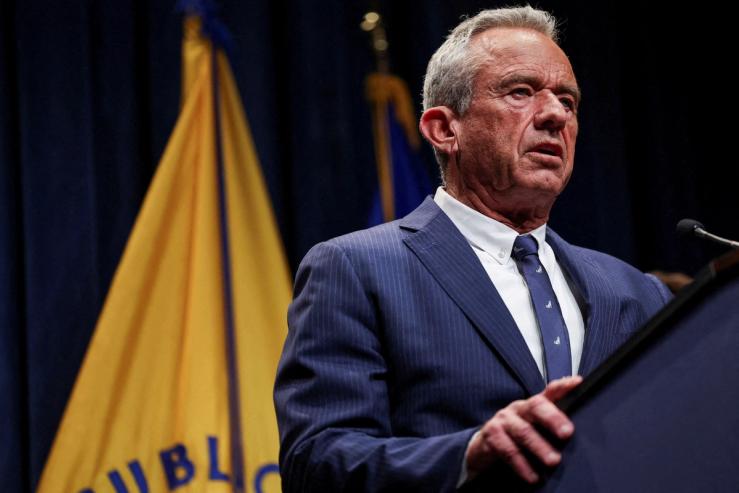what’s at stake
Robert F. Kennedy Jr.’s tenure atop the nation’s health department has proven controversial, but some Democrats in Washington agree with him on at least one goal: eliminating synthetic dyes from the US food supply.
The Department of Health and Human Services announced plans to phase out eight synthetic food dyes earlier this year, and Kennedy has worked on convincing companies like Kraft Heinz to remove artificial dyes from their products.
Some studies have linked synthetic dyes to behavioral issues in children, but other experts argue that more research is needed to reach a conclusion on their safety.
Kennedy’s push has faced resistance from the candy industry, which uses the dyes to market iconic sweet treats to kids.
In this article:
who’s making the case
Rep. Rosa DeLauro, D-Conn., argues that synthetic food dyes found to be risky should be removed from the US food supply:
“Synthetic food dyes that have been proven unsafe or have known risks have no place in our food supply. Red 3 is a perfect example — it’s been banned in cosmetics since 1990 because it causes cancer in animals, yet it remained in candies, baked goods, and snacks marketed to kids. That’s why I fought to get it off the market — and I was proud to see the Biden administration move to ban Red 3 in food at the end of last year.
“But this should be the beginning, not the end. I have long called for action on largely unregulated additives, chemicals, and dyes in our foods. It is time the FDA was empowered to assess dyes already in our food supply. Companies should reformulate their products with healthy alternatives just as they already do in Europe.
“This isn’t a question of feasibility — it’s been done. Corporations must stop putting profit motives above the health and wellbeing of Americans. We should not be consuming products that contain dyes that have been proven unsafe and banned in other countries.”
Christopher Gindlesperger, senior vice president of public affairs and communications at the National Confectioners Association, says that more research is needed to evaluate food dyes and that federal officials need to give companies more time to find alternatives.
“Consumers understand that confectionery products are treats, and that they contain sugar, food colors, and other FDA-approved ingredients, because candy is intrinsically transparent. … People in the US enjoy chocolate and candy 2-3 times per week, averaging just 40 calories and about one teaspoon of added sugar per day — which is far less than the other categories of indulgent food that contain synthetic dyes.
“We are in firm agreement that science-based evaluation of food additives will help eliminate consumer confusion and rebuild trust in our national food safety system. We will follow and will continue to follow regulatory guidance from the authorities in this space, because consumer safety is our chief responsibility and priority. We encourage FDA and HHS to do the jobs of actually evaluating these ingredients — instead, they held a press conference and continue to push false and inflammatory rhetoric to hide their lack of scientific evidence.
“Companies need time to find and incorporate viable alternatives to synthetic colors as there is a long reformulation process and significant costs associated with doing so. Right now, there is a lot of focus on food manufacturers, but the supply chain also has to adapt to accommodate higher demand for natural color alternatives.”
Notable
- M&M’s may be the largest obstacle standing in the way of Kennedy “and the ability to claim total victory,” The New York Times writes.
- Kennedy’s views on synthetic dyes earned him rare praise from Sen. Bernie Sanders, I-Vt., who went on to vote against his nomination.
Editor’s note: Following the publication of this article, a spokesperson for the National Confectioners Association said that the “vast majority of chocolate and candy on store shelves today is made by companies that do not advertise on children’s programming.” The spokesperson pointed to a 2016 initiative, which is still current, that saw many companies commit to not advertising directly to children under 12.


